Manners Quotes
Most popular manners quotes
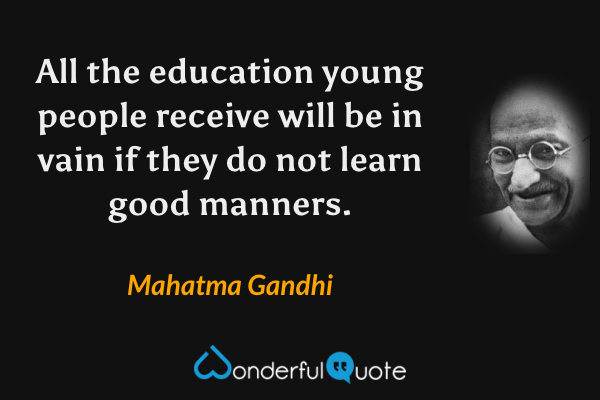
All the education young people receive will be in vain if they do not learn good manners.

Manners make the fortune of the ambitious youth.

Fine manners need the support of fine manners in others.

The society of women is the element of good manners.

Manners are the happy way of doing things.

Manners are a sensitive awareness of the feelings of others. If you have that awareness, you have good manners, no matter what fork you use.
Life is not so short but that there is always time for courtesy.

Politeness is the art of selecting among one's real thoughts.

To have a respect for ourselves guides our morals; to have a deference for others governs our manners.

Manners are like the zero in arithmetic; they may not be much in themselves, but they are capable of adding a great deal to the value of everything else.
Etiquette is getting sleepy in company and not showing it.

You can get through life with bad manners, but it's easier with good manners.
Every generation is convinced there has been a deplorable breakdown of manners.

To be agreeable in society, you must consent to be taught many things which you already know.
A gentleman is a man who uses a butter knife when dining alone.
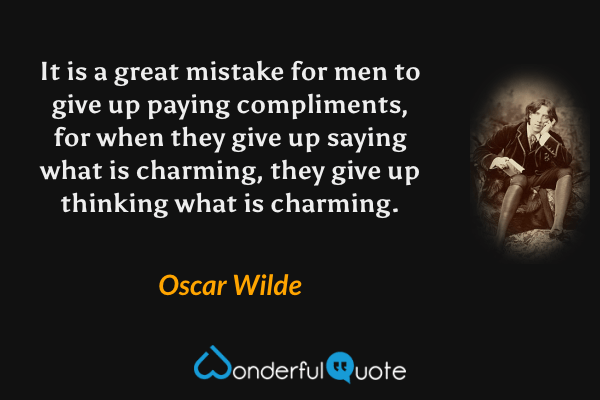
It is a great mistake for men to give up paying compliments, for when they give up saying what is charming, they give up thinking what is charming.
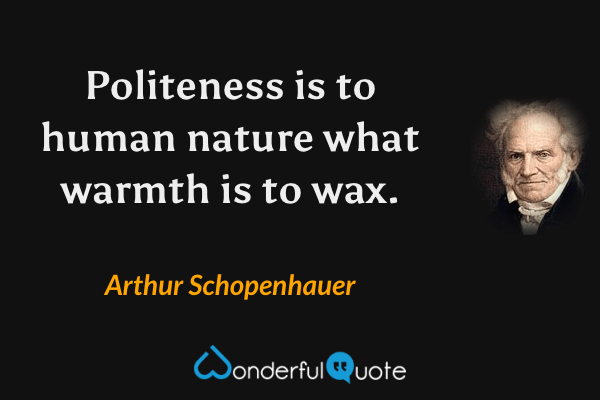
Politeness is to human nature what warmth is to wax.
He who says what he likes, hears what he does not like.

The manner in which it is given is worth more than the gift.

It is much easier to be a hero than a gentleman.
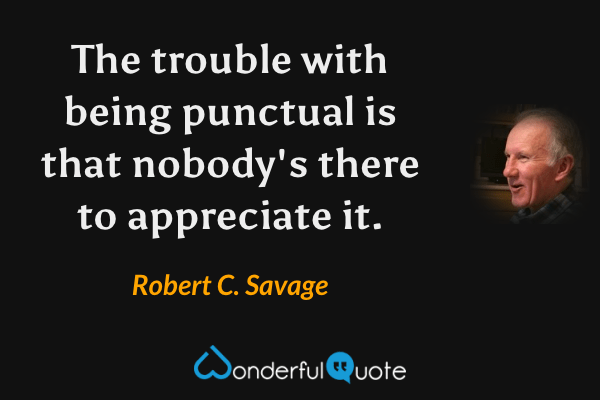
The trouble with being punctual is that nobody's there to appreciate it.

Nothing is less important than which fork you use.

Manners require time, and nothing is more vulgar than haste.

There is nothing settled in manners, but the laws of behavior yield to the energy of the individual.

Under bad manners, as under graver faults, lies very commonly an overestimate of our special individuality, as distinguished from our generic humanity.
The most difficult thing in the world is to know how to do a thing and to watch somebody else doing it wrong, without comment.
Good manners is the art of making those people easy with whom we converse. Whoever makes the fewest people uneasy is the best bred in the room.

Manners are the happy ways of doing things; each once a stroke of genius or of love,--now repeated and hardened into usage.
Never drink from your finger-bowl – it contains only water.

A general rule of etiquette is that one apologizes for the unfortunate occurrence, but the unthinkable is unmentionable.

When God sneezed, I didn't know what to say.
Good manners have much to do with the emotions. To make them ring true, one must feel them, not merely exhibit them.

It would be a swell world if everybody was as pleasant as the fellow who's trying to skin you.
A car is useless in New York, essential everywhere else. The same with good manners.
Learn politeness from the impolite.

Manners are especially the need of the plain. The pretty can get away with anything.

Charming villains have always had a decided social advantage over well-meaning people who chew with their mouths open.

We are born charming, frank, and spontaneous and must be civilized before we are fit to participate in society.

Those who have mastered etiquette, who are entirely, impeccably right, would seem to arrive at a point of exquisite dullness.

He who observes etiquette but objects to lying is like someone who dresses fashionably but wears no vest.

Nothing more rapidly inclines a person to go into a monastery than reading a book on etiquette. There are so many trivial ways in which it is possible to commit some social sin.
Etiquette means behaving yourself a little better than is absolutely essential.

Protocol is etiquette with a government expense account, and is not to be sneered at.

Etiquette is about all of human social behavior. Behavior is regulated by law when etiquette breaks down or when the stakes are high—violations of life, limb, property and so on. Barring that, etiquette is a little social contract we make that we will restrain some of our more provocative impulses in return for living more or less harmoniously in a community.
If "tact consists in knowing what not to say," etiquette consists in knowing what not to do in the direction of manifesting our impulsives likes and dislikes.
Etiquette can be at the same time a means of approaching people and of staying clear of them.

The lie is the basic building block of good manners.
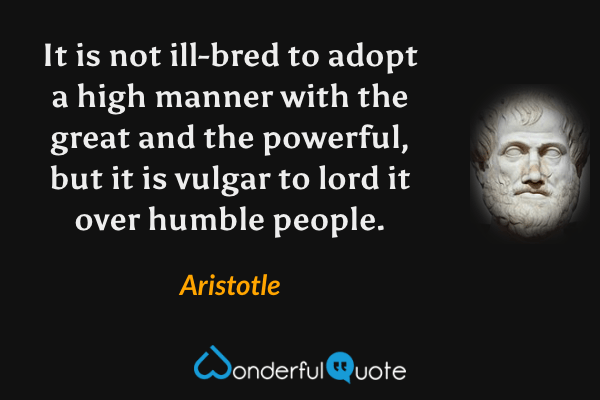
It is not ill-bred to adopt a high manner with the great and the powerful, but it is vulgar to lord it over humble people.

Manners are the hypocrisy of a nation.

I don't mind if you don't like my manners. I don't like them myself. They're pretty bad. I grieve over them on long winter evenings.

Good general-purpose manners nowadays may be said to consist in knowing how much you can get away with.

Manners are of more importance than laws. Upon them, in a great measure, the laws depend.

We are justified in enforcing good morals, for they belong to all mankind; but we are not justified in enforcing good manners, for good manners always mean our own manners.

Manners are love in a cool climate.

Good manners are made up of petty sacrifices.

Morals are three-quarters manners.
Good manners spring from just one thing—kind impulses.

Good manners—the longer I live the more convinced I am of it—are a priceless insurance against failure and loneliness. And anyone can have them.
Good manners are the technique of expressing consideration for the feelings of others.
Manners and morals are twin shoots from the same root.

Spiritual strength and passion, when accompanied by bad manners, only provoke loathing.

Good manners are a combination of intelligence, education, taste, and style mixed together so that you don't need any of those things.
Manners are a sensitive awareness of the feelings of others. If you have that awareness, you have good manners, no matter what fork you use.

The essence of good manners consists in making it clear that one has no wish to hurt.

What once were vices, are now the manners of the day.

Manners must adorn knowledge, and smooth its way in the world.
Good manners is the art of making those people easy with whom we converse, Whoever makes the fewest persons uneasy, is the best bred in the company.

The Japanese have perfected good manners and made them indistinguishable from rudeness.
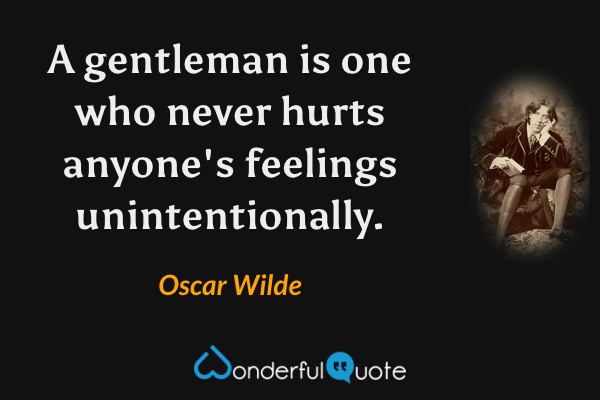
A gentleman is one who never hurts anyone's feelings unintentionally.


